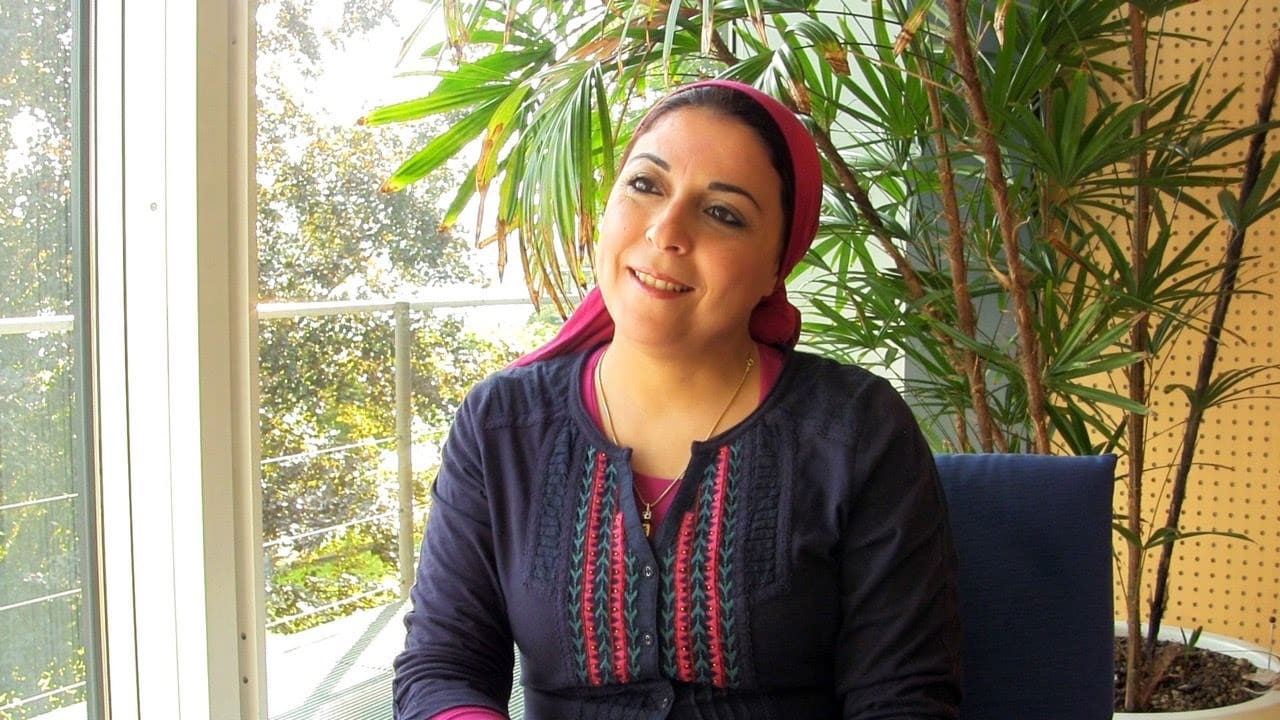Egyptian social media activist, journalist and human rights defender, Esraa Abdel Fattah, has instructed a team of international lawyers to challenge her continued mistreatment by the Egyptian State, including measures that prevent her from travelling outside of the country.
On 13 January 2015, Esraa was about to board a flight to pursue a scholarship abroad when she first became aware that she was under a travel ban. She later established that her name had been added to a travel ban list that contained the names of political leaders, bloggers and civil society activists suspected of having received “foreign funding”. She is still prevented from travelling abroad, and has been unable to fully determine the reasons behind the ban.
Prior to her travel ban, Esraa had come to be known as the “Facebook Girl” due to her prominent use of social media to organise and support public protests in Egypt. In 2008, Esraa set up a Facebook group calling for a textile workers’ strike in an industrial town, and was subsequently detained for her involvement in supporting the movement. She later went on to help organise the 2011 Arab Spring protests, which brought about the end of President Mubarak’s 30-year rule. She also acted as a vital source on the ground for the international media during the protests. Her involvement in the events of 2011 resulted in her being nominated for the Nobel Peace Prize. She has also been commended for her work by Glamour Magazine (she was named one of its Women of the Year for 2011), Arabian Business Magazine (who named her one of the 100 most powerful Arab women) and Freedom House (who awarded her the New Generation Democratic Activist award in 2010).
Today, with President Abdel Fattah al-Sisi’s increasing clampdown on protests and public demonstrations, activists like Esraa are continually under threat and are ever more vulnerable to state harassment. A legal team specialised in international human rights law are currently acting in Esraa’s case with the aim of seeking redress for the violations she has sustained, and to highlight the systemic violations experienced by civil society in Egypt more generally.
“Egypt continues to use threats and intimidation against its critics, in order to stifle their voices. Esraa has long been a strong voice supporting free speech, democracy and women’s rights in Egypt, and for that she has been imprisoned, intimidated, threatened and she is now barred from leaving the country. We call on the Egyptian government to halt its campaign against Esraa and to lift the travel ban immediately,” says Caoilfhionn Gallagher, a barrister at Doughty Street Chambers who specialises in media and human rights law.
Partner at Howard Kennedy, Mark Stephens CBE, an international media law expert, says “Freedom of Speech for journalists like Esraa is an essential check and balance in a democracy, and even more so in an autocracy such as Egypt.”
He added “Esraa’s case is yet another example of the Egyptian authorities’ disregard for freedom of expression. In recent weeks the Journalists’ Syndicate leaders have been sentenced to two years in prison for fearlessly reporting the truth; a television host has been barred from travelling without due process or any explanation; and photojournalist Shawkan remains imprisoned in Cairo without trial, where he has been held since 2013.
“Sadly Egypt ignores merits of habeas corpus. Last month President Abdel Fattah el-Sisi defended Egypt’s freedom of expression record. His words are empty and vacuous unless action is taken to allow Esraa to travel freely, blog and speak freely.”
“Esraa’s travel ban does not only physically restrain her from travelling abroad. It acts as a punishment and a deterrent; a punishment for adopting the increasingly vital role of citizen journalist and social media activist in Egypt, and a deterrent against speaking out against the political status quo. Her travel ban is a clear violation of her human rights and should be lifted immediately” says Jonathan McCully, legal officer at the Media Legal Defence Initiative, an NGO that provides legal defence to journalists and bloggers around the world.
Note for Editors:
1.Esraa Abdel Fattah is represented by solicitors Mark Stephens CBE and Elizabeth Morley, Howard Kennedy LLP, barristers Caoilfhionn Gallagher, Katie O’Byrne and Mark Wassouf, Doughty Street Chambers, and Jonathan McCully, MLDI.
2.Press inquiries should be directed to Mark Stephens, CBE at Howard Kennedy LLP on 07831 115000.
3.The travel ban was first imposed on 24 December 2014, although Esraa did not learn of it until January 2015 when she attempted to travel from Cairo airport.
4.There is a twitter campaign supporting the call for the travel ban t
Recent News
Landmark Ruling: Kenya’s High Court Declares Colonial-era Subversion Laws Unconstitutional
Media Defence welcomes the verdict of the High Court in Nakuru, striking down sections of the Kenyan Penal Code which criminalise subversion, citing them as relics of colonial oppression that curtail freedom of expression. Justice Samwel Mohochi, delivering the judgment, asserted that these provisions were overly broad and vague, stifling dissent rather than serving any […]
UN Rapporteurs Call for Protection of Brazilian Journalist Schirlei Alves
UN Rapporteurs Call for Protection of Brazilian Journalist Schirlei Alves Amid Defamation Charges Stemming from Rape Trial Coverage A letter dispatched by UN rapporteurs to the Brazilian Government calls for protective measures for women journalists covering cases of sexual crimes. The letter also denounces the conviction of Brazilian investigative journalist and women’s rights defender, Schirlei […]
Convite à apresentação de candidaturas: Cirurgia de litígio em português na África Subsariana
Cirurgia de litígio em português na África Subsariana Aplique aqui 23 a 25 de julho de 2024 em Nairobi, Quénia Prazo: 3 de maio A Media Defence está a convidar advogados sediados na África Subsariana que falem português a candidatarem-se a participar numa próxima cirurgia de litígio sobre o direito à liberdade de expressão e […]



